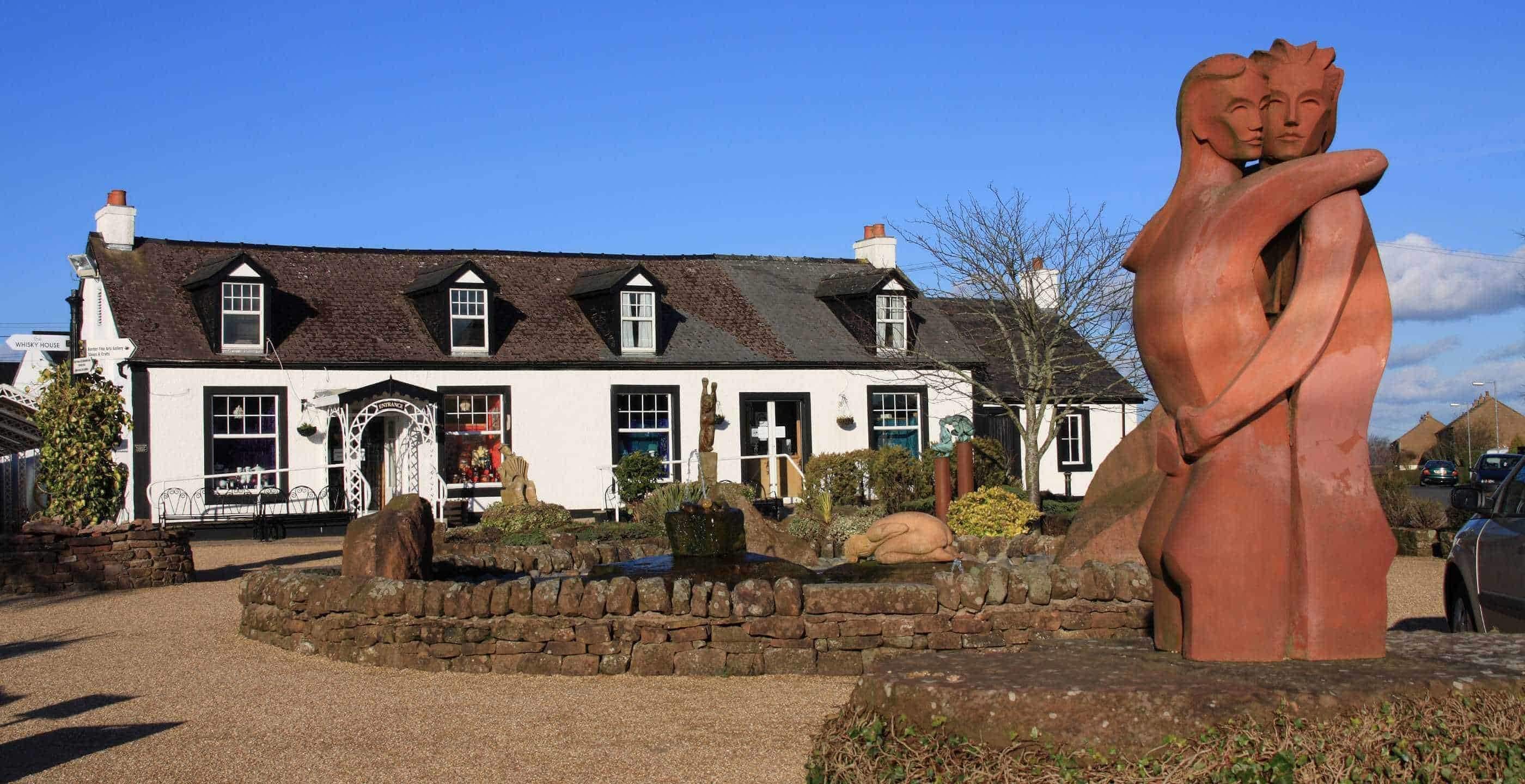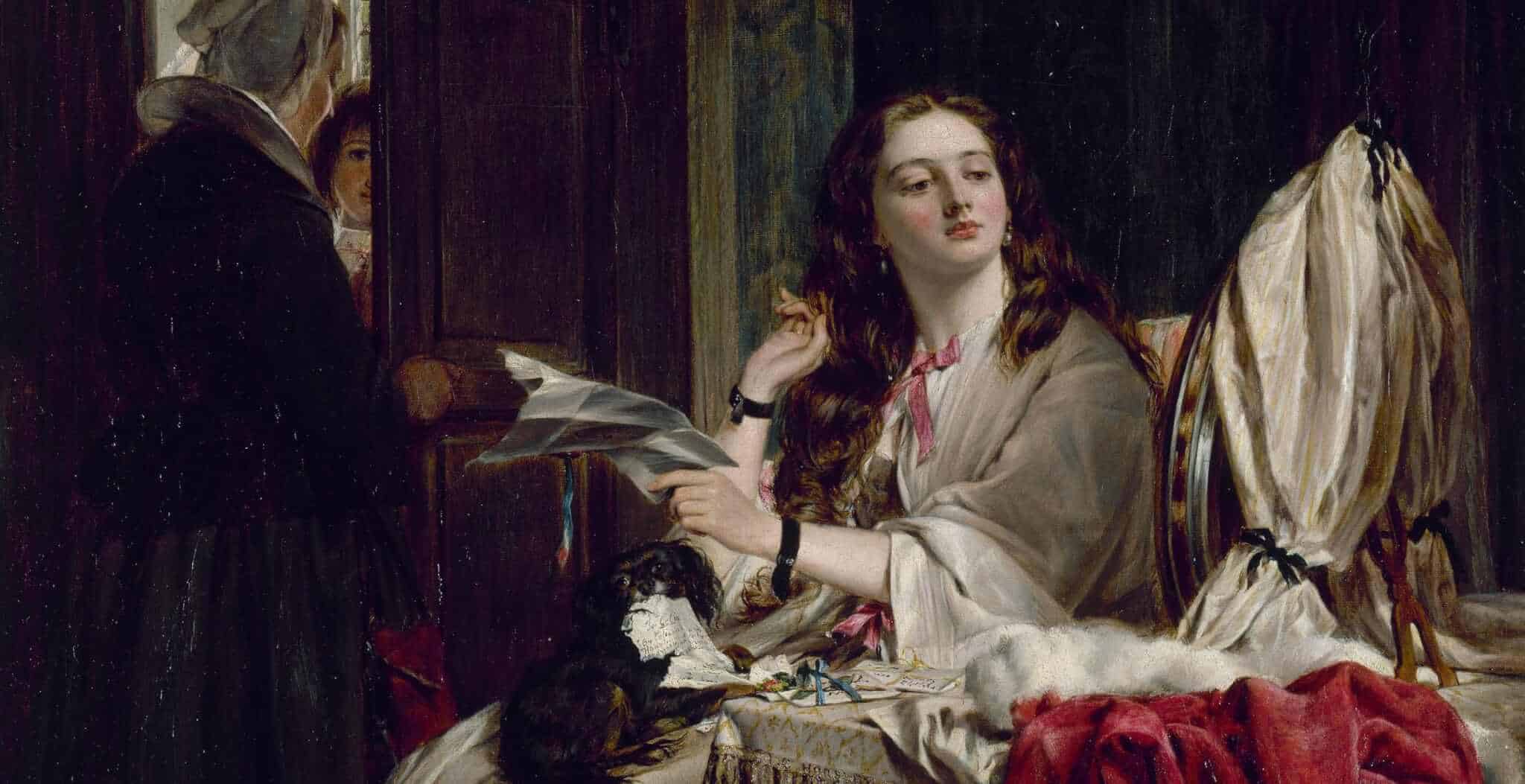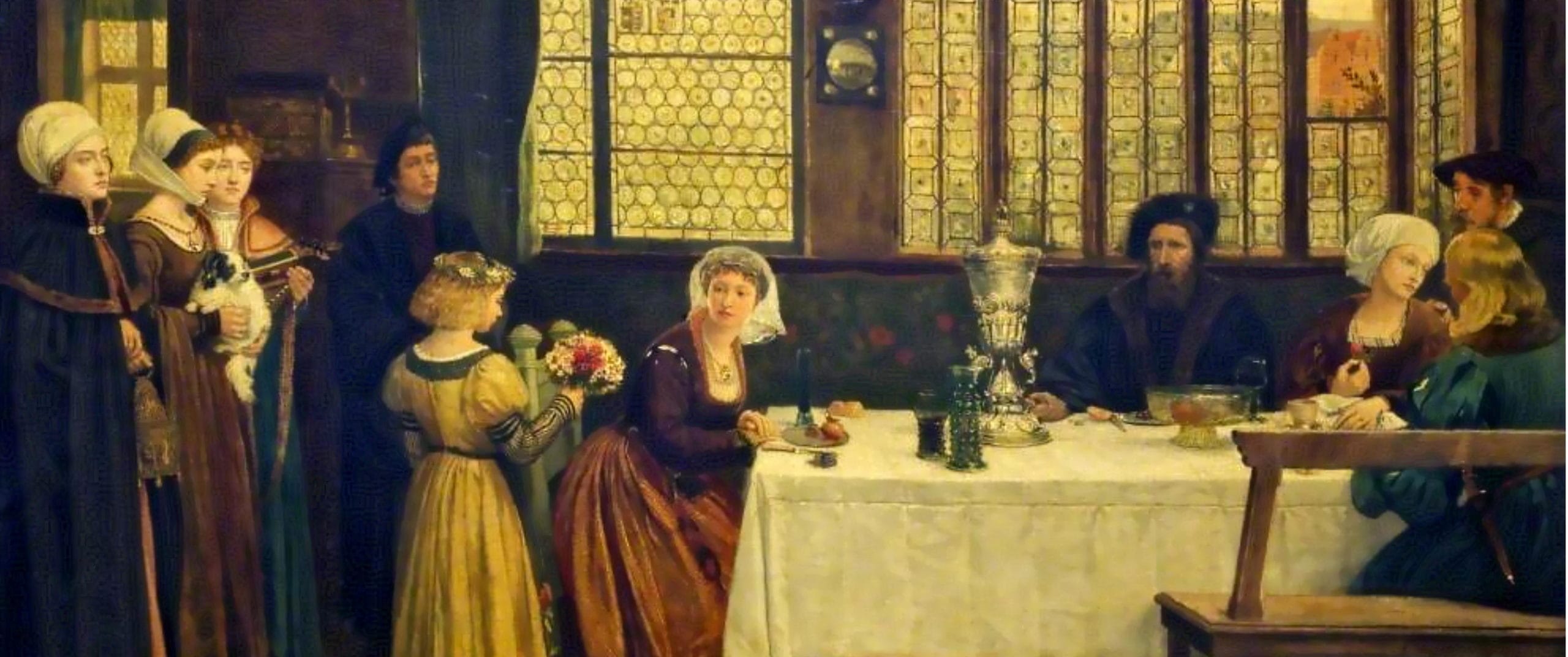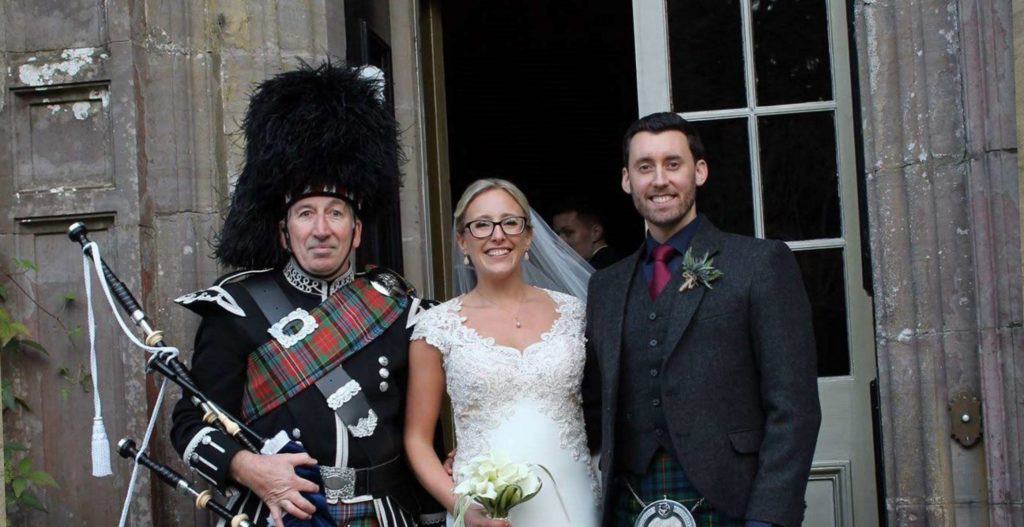Gretna Green in Dumfries and Galloway is possibly the most romantic place in Scotland, if not in the UK. This small Scottish village has become synonymous with romance and runaway lovers.
In 1754 a new law, Lord Hardwicke’s Marriage Act, was brought into force in England. This law required young people to be over 21 years of age if they wished to marry without their parents’ or guardian’s consent. The marriage was required to be a public ceremony in the couple’s parish, with an official of the Church presiding. The new law was rigorously enforced and carried a sentence of 14 years transportation for any clergyman found breaking it.
The Scots however did not change the law and continued with their centuries-old marriage customs. The law in Scotland allowed anyone over the age of 15 to enter into marriage provided they were not closely related to each other and were not in a relationship with anyone else.
This marriage contract could be made wherever the couple liked, in private or in public, in the presence of others or no-one at all.
The ‘irregular marriage’ ceremony would be short and simple, something like:
“Are you of marriageable age? Yes
Are you free to marry? Yes
You are now married.”
A marriage in the Scottish tradition could take place anywhere on Scottish soil. Being so close to the English border, Gretna was popular with English couples wanting to marry but when in the 1770s a toll road was built running through the village making it even more accessible from south of the border, it soon became renowned as the destination for eloping couples.
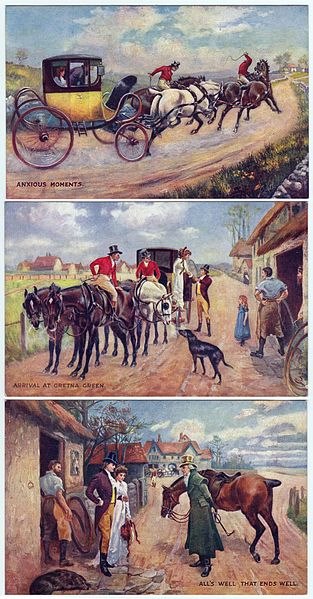
Forbidden romance and runaway marriages were popularised in the fiction of the time, for example in the novel ‘Pride and Prejudice’ by Jane Austen.
English couples usually preferred to keep some English marriage traditions and so looked for someone in authority to oversee the ceremony. The most senior and respected craftsman or artisan in the countryside was the village blacksmith, and so the Blacksmith’s Forge at Gretna Green became a favourite place for weddings.
The tradition of the blacksmith sealing the marriage by striking his anvil led to the Gretna blacksmiths becoming known as ‘anvil priests’. Indeed the blacksmith and his anvil are now symbols of Gretna Green weddings. Gretna Green’s famous Blacksmiths Shop, the Old Smithy where lovers have come to marry since 1754, is still in the village and still a wedding venue.
There are now several other wedding venues in Gretna Green and marriage ceremonies are still performed over a blacksmith’s anvil. Gretna Green remains one of the most popular places for weddings and thousands of couples from all around the world flock to this Scottish village to be married each year.
